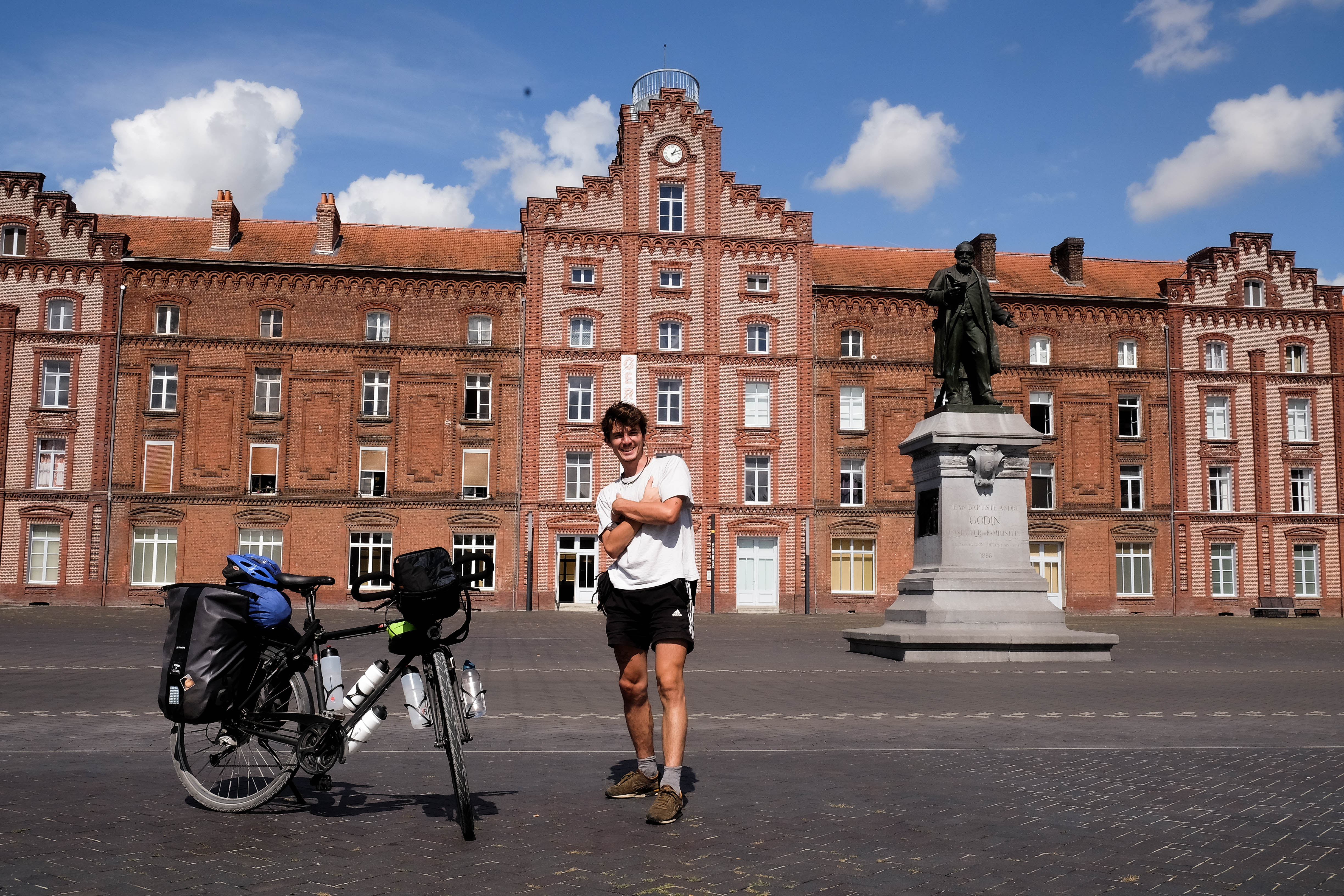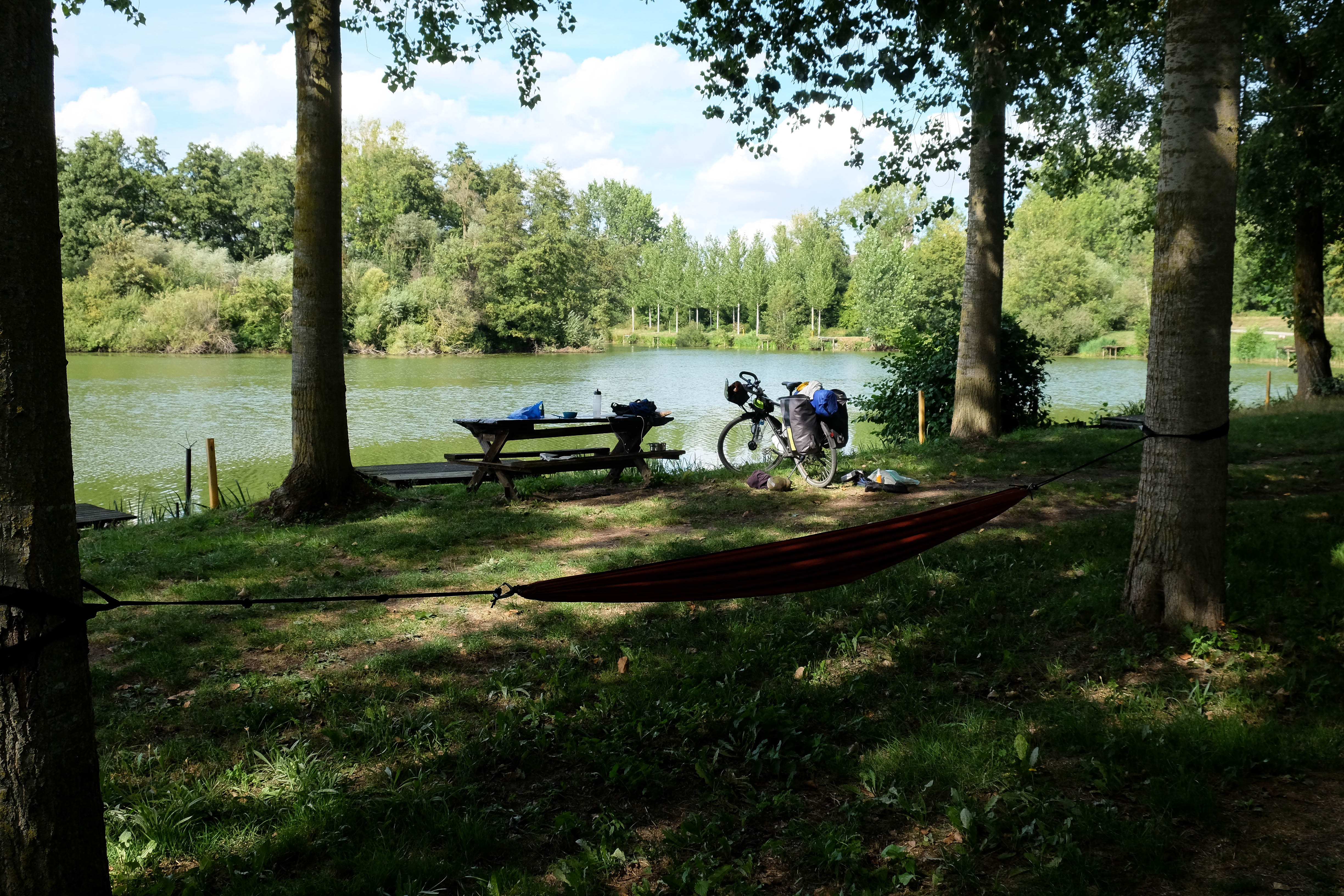In the same section
The Erasmus+ programme is changing and going green in response to environmental challenges. Starting in 2021, it will finance more environmentally friendly modes of mobility.
The Green Erasmus project aims to increase environmental awareness of mobility and ultimately reduce the carbon footprint of transport-related mobility activities.
The Erasmus Student Network (ESN) developed the Green Erasmus Portal to provide students with information on how to be sustainable before, during and after their Erasmus experience. You will find more information (and plenty of useful tips) on the Green Erasmus website, check it out!
- Why?
-
- To receive up to 6 additional days of scholarship in case of short-term mobility, or a bonus to your transport grant in case of long-term mobility
- To reduce your carbon footprint: CO2 emissions from ULB mainly come from the travel of university members, students, and employees. Student air travel alone accounts for 12% of ULB's emissions!
- To contribute to the Climate Plan adopted by ULB in 201
- For whom?
-
- Outgoing ULB Erasmus+ students with who use sustainable means of transport to travel to and from their host country, except those going to Belgium or Switzerland.
- Outgoing ULB students with fewer opportunities doing a mobility in a non-Erasmus+ country (AMO students).
Please note that to qualify for the Green Erasmus bonus, the round trip between Belgium and the host country must always be made using sustainable means of transport: train, bus, or carpooling via an official platform. - How?
-
After the end of your stay, please send your completed personal statement (received at the beginning of your stay) + the proof that you travelled sustainably* to and from your host country to: gloria.cavasin@ulb.be (Erasmus+ mobility), alice.hoslet@ulb.be (Hybrid mobility), camille.delahaut@ulb.be (FAMES/Outside of Europe mobility) or stage.erasmus@ulb.be (Erasmus+ traineeships).
*Sustainable means of transportation = Train or bus tickets, carpooling receipts from an official platform
Trips and transfers taking place during the mobility (i.e. commuting to class) cannot be taken into account
- Planning Your Trip
-
If possible, choose to travel by train, bus, or carpool. Here are some websites to help you plan your sustainable journey effectively:
- Bus/Train Price Comparison: Book, search & compare trains, buses & flights (GoEuro) | Omio
- Can I reach my host city by train in less than eight hours? Chronotrains
- Calculate and compare the CO2 emissions of your different modes of transport on Greentripper and EcoPassenger .
Traveling by Train:
- Night Trains: https://www.nightjet.com/fr/
- Interrail Pass: Interrail Passes: Explore Europe by rail | Interrail.eu
- Plan your train journey: Erasmus by Train
- Check if your host country offers discounts for students or train passes, such as the BahnCard for Germany or the Carte Avantage Adulte for France.
Traveling by Bus:
- Flixbus: https://fr.flixbus.be/
- BlaBlaBus: BlaBlaBus - Ouibus
- Eurolines: https://www.eurolines.de/fr/home/
Carpooling:
- BlaBlaCar: BlaBlaCar
Destination only reachable by plane?
- Avoid unnecessary round trips during your stay.
- Choose the least polluting airline and route: atmosfair Airline Index - atmosfair
- Choosing (and Furnishing) Your Accommodation
-
Every little effort counts, and collectively, the actions of Erasmus students can have a significant positive impact on the environment.
- Opt for accommodations with eco-certifications, such as LEED or Green Key.
- If possible, choose accommodations close to the university to reduce daily commutes.
- Learn about waste sorting in your host country.
- Need small furniture or kitchen utensils? Opt for second-hand items or check if you can borrow them from friends, your host university, or other students.
- At the end of your mobility, instead of throwing them away, give items you can't take home to other students or second-hand stores.
- During the mobility
-
Don't forget to pack good habits in your suitcase!
- Buy locally and responsibly: support local markets, farmers, and artisans to contribute to the local economy and reduce the carbon impact of imported products.
- Remember to bring a reusable water bottle, a canvas shopping bag, and reusable utensils to reduce single-use plastic waste during your travels.
- Use buses, trams, subways, and bikes to explore your host city, and choose activities and excursions that focus on responsible discovery of local nature and culture.
- Diana's experience
-
"Hello!
For my transport to my Erasmus destination, I opted for "sustainable" travel. What does this mean? It means taking more sustainable transport than flying: be it train, bus or carpooling.
Personally, I opted for the bus. There are several reasons why I decided to make this kind of journey. On the one hand, for environmental reasons, for which I try to make a minimum commitment, and on the other hand, for purely practical reasons (transfer to and from the airport is often long and expensive, waiting time at the airport, limitations on the volume and content of luggage etc.) and of course for financial reasons.
My journey was as follows: I first had to move all my things from Brussels to Lyon, my home town. To get to Lyon, I took a 10-hour Flixbus ride. Then, the following week, I travelled from Lyon to Malaga by Flixbus as well.
This may come as a surprise, as it was a 26-hour journey, but frankly, once you get into a travelling mood, the journey just comes together. Plus, I really felt like I was travelling, not being "teleported" from one place to another in a few hours by plane.
The bus went through the south-west of France (Bordeaux) and then down to the north-west of Spain (Bilbao), down to the centre through Burgos, Madrid, Jaén, Granada and finally to Málaga, my destination.
All in all, the big advantage is that you get to travel through a lot of great scenery and often meet other travellers!" - Oscar's trip
-
"To get to Madrid, I travelled by bike and finished my journey by coach".
Here are a few photos...
- Yes, it's doable!
-
Need some inspiration? Here are (some of) the host cities our students have reached using sustainable means of transport:
- Innsbruck and Vienna (Austria)
- Aarhus, Denmark
- Madrid, Granada, Malaga, Salamanca and Girona (Spain)
- Helsinki, Finland
- Paris, Lyon, Marseille (France)
- Rome, Milan, Bologna (Italy)
- Amsterdam, Leiden, Utrecht (The Netherlands)
- Ljubljana, Slovenia
- Stockholm and Falun (Sweden)
- Prague, Czech Republic
Did you know?
Air transport is by far the mode of transportation that emits the most CO2 per passenger-kilometer (20 times more than trains). CO2 emissions from ULB (Université libre de Bruxelles) primarily come from the travel of university members, students, and employees (45% of the total). Student air travel alone accounts for 12% of ULB's emissions!




